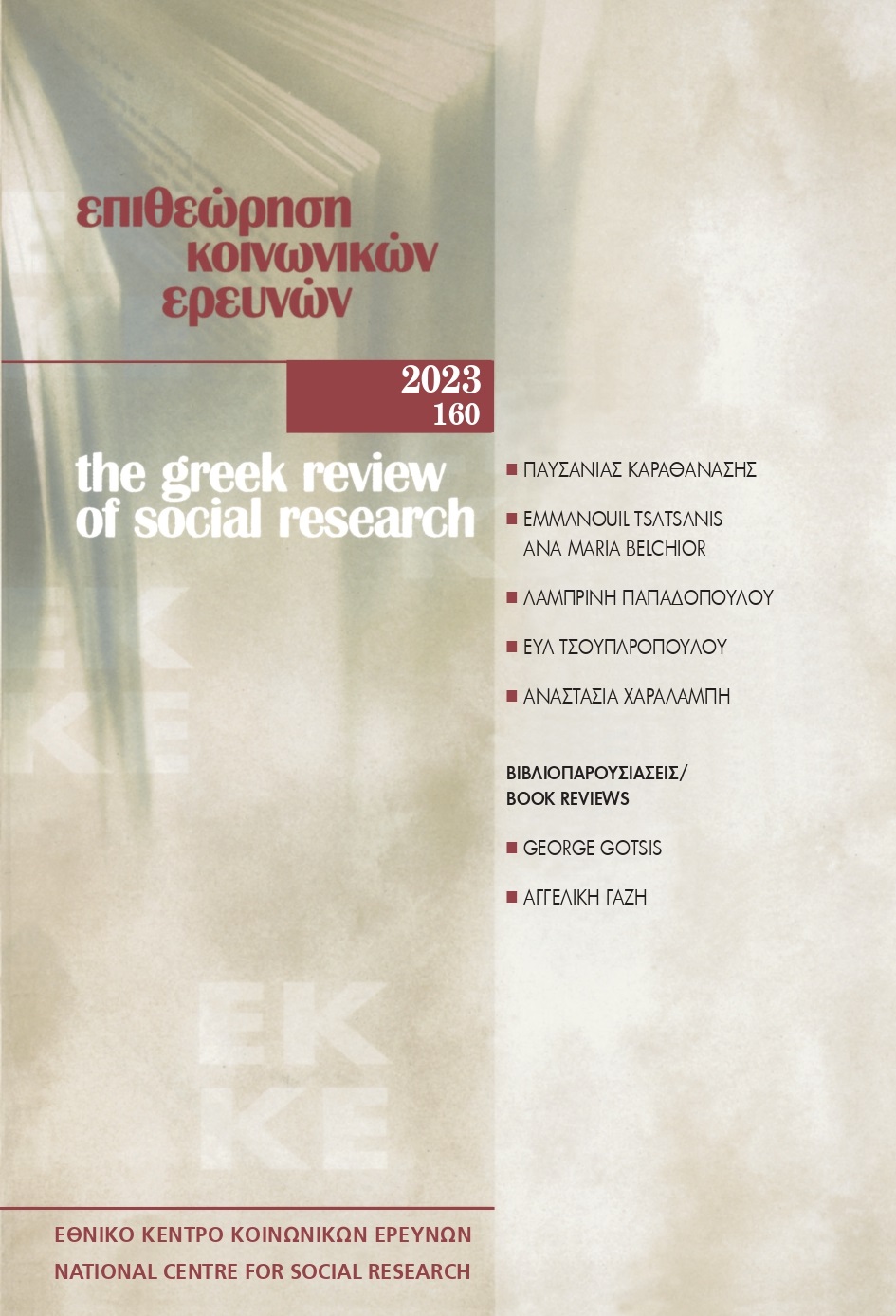Losers of globalization, losers in representation? The impact of education on unequal policy representation in Europe

Περίληψη
Ηττημένοι της παγκοσμιοποίησης, ηττημένοι και στην αντιπροσώπευση; Ο αντίκτυπος του μορφωτικού επιπέδου σε ανισότητες στην πολιτική αντιπροσώπευση
Το άρθρο εστιάζεται στην επίδραση της μόρφωσης στην πολιτική αντιπροσώπευση. Εξετάζει βαθμούς σύγκλισης και αντιστοίχισης μεταξύ πολιτικών ελίτ (κυβερνητικών κομμάτων) και πολιτών σε ό,τι αφορά προτιμήσεις σε μία σειρά τομέων πολιτικής. Το ερευνητικό ερώτημα της μελέτης είναι το κατά πόσο παρατηρείται χάσμα αντιπροσώπευσης μεταξύ διαφορετικών κοινωνικών ομάδων που μπορούν να διαχωριστούν μεταξύ των λεγόμενων «νικητών» και «ηττημένων της παγκοσμιοποίησης» με γνώμονα το μορφωτικό επίπεδο. Συγκεκριμένα, εξετάζουμε α) το αν οι προτιμήσεις σε διάφορους τομείς πολιτικής των ατόμων που διαθέτουν χαμηλό επίπεδο μόρφωσης εκπροσωπούνται το ίδιο καλά συνολικά στις χώρες της Ευρώπης, β) το αν αυτό το χάσμα αντιπροσώπευσης επηρεάζεται από ευρύτερους οικονομικούς και πολιτικούς παράγοντες, όπως το βάθος της ύφεσης κατά την περίοδο της κρίσης και η ιδεολογία της εκάστοτε εθνικής κυβέρνησης. Για τη διερεύνηση των ερωτημάτων χρησιμοποιούνται δεδομένα από το European Election Study του 2014 και την Chapel Hill Expert Survey επίσης του 2014.
Λεπτομέρειες άρθρου
- Πώς να δημιουργήσετε Αναφορές
-
Tsatsanis, E., & Belchior, A. M. (2023). Losers of globalization, losers in representation? The impact of education on unequal policy representation in Europe. Επιθεώρηση Κοινωνικών Ερευνών, 160, 39–77. https://doi.org/10.12681/grsr.33161
- Τεύχος
- 2023: 160
- Ενότητα
- Άρθρα

Αυτή η εργασία είναι αδειοδοτημένη υπό το CC Αναφορά Δημιουργού – Μη Εμπορική Χρήση 4.0.
Οι συγγραφείς των άρθρων που δημοσιεύονται στην Επιθεώρηση Κοινωνικών Ερευνών διατηρούν τα δικαιώματα πνευματικής ιδιοκτησίας επί των άρθρων τους, δίνοντας στο περιοδικό το δικαίωμα της πρώτης δημοσίευσης. Άρθρα που δημοσιεύονται στην Επιθεώρηση Κοινωνικών Ερευνών διατίθενται με άδεια Creative Commons 4.0 και σύμφωνα με την άδεια μπορούν να χρησιμοποιούνται ελεύθερα, με αναφορά στο/στη συγγραφέα και στην πρώτη δημοσίευση για μη κερδοσκοπικούς σκοπούς.
Το Εθνικό Κέντρο Κοινωνικών Ερευνών διατηρεί το δικαίωμα να δημοσιεύει, να αναπαραγάγει, να παρουσιάζει στο κοινό, να διανέμει και χρησιμοποιεί άρθρα που δημοσιεύονται στην Επιθεώρηση Κοινωνικών Ερευνών σε οποιοδήποτε μέσο και μορφή είτε μεμονωμένα είτε ως μέρη συλλογικών έργων, για όλο τον χρόνο διάρκειας προστασίας της πνευματικής ιδιοκτησίας και για όλες τις χώρες του κόσμου. Αυτό περιλαμβάνει ενδεικτικά και όχι αποκλειστικά το δικαίωμα δημοσίευσης των άρθρων σε τεύχη της Επιθεώρησης Κοινωνικών Ερευνών, αναπαραγωγής και διανομής μεμονωμένων αντιγράφων των άρθρων, αναπαραγωγής ολόκληρων των άρθρων σε άλλη έκδοση του Εθνικού Κέντρου Κοινωνικών Ερευνών, καθώς και αναπαραγωγής και διανομής των άρθρων ή περίληψης αυτών με χρήση πληροφορικού συστήματος αποθετηρίου.


